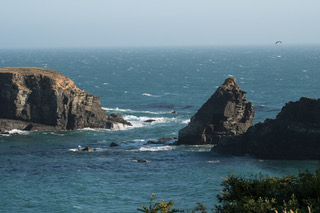
Dynamic Objectivism: The Platonic Ideal
While many of the critiques of static objectivism are products of late 20th century and early 21st century thought, there is a much earlier source: Plato offers a dynamic objectivism through his allegory of the cave. Let’s briefly visit this cave. According to Plato, we are all living in a cave and never gain a clear view of reality, but instead view the shadows that are projected on the walls of the cave. We live with an image of reality (shadows on the wall of the cave) rather than with reality itself—which makes our sense of reality quite dynamic and a source of considerable tension. Plato, an idealist, notes that we have no basis for knowing whether we are seeing the shadow or seeing reality, given that we have always lived in the cave. Plato thus speaks to us from many centuries past about the potential fallacy to be found in a static objectivist perspective regarding the world—since we can never know whether we are living in the cave or living in the world of reality outside the cave.
Today, we live with an expanded cast of characters in the cave. First, there is something or someone standing near the opening of the cave. It can be cultural or personal narratives that we are met with on our daily life, narratives and perspectives that block out some of the light coming into the cave. Not only don’t we actually see reality, there is something that determines which parts of objective reality get projected onto the wall. This is what makes the Platonic objectivism dynamic—for those holding the partition have grown up in the cave, but may hold a quite different agenda from other cave dwellers. There is yet another character in our contemporary cave. This is the interpreter or reporter or analyst. We actually don’t have enough time in our busy lives to look directly at the wall to see the shadows that are projected on the wall from the “real” world. The cave has grown very large and we often can’t even see the walls of the cave and the shadows. We wait for the interpreter to tell us what is being projected on the wall and what the implications of these images are for us in our lives.
We are thus removed three steps from reality. We believe that the shadows on Plato’s cave are “reality.” We don’t recognize that someone is standing at the entrance to the cave and selectively determining which aspects of reality get projected onto the wall. Finally, someone else is standing inside the cave offering us a description and analysis. We cam hope for a direct experience and we suggest that a coach can assist in this process. Yet, we remained confused about what is “real” and often don’t trust our direct experience. We move, with great reluctance and considerable grieving, to a recognition that reality is being constructed for us and that we need to attend not only to the constructions, but also to the interests and motives of those who stand at the entrance to the cave and those who offer us their interpretations. We must move, in other words, from an objectivist perspective (whether it be static or dynamic) to a constructivist perspective.
Plato’s cave and his dynamic objectivism do provide us with the opportunity to gain insights in a coaching session about the nature of the cave, the world that is projected onto the walls of the cave, and the nature and agenda of the interpreters. We should also consider whether or not to step outside the cave (direct experience). Can we actually step outside the cave? How does the coach assist us in stepping outside the cave? Is it safer to remain inside the cave then to venture outside without the help of interpreters? Should we (and can we) face the profound challenge of unmediated experiences? Should (and can) a coach help us by inviting us to step outside the cave and by helping us recognize ways in which we still carry the cave shadows and cave interpreters with us when stepping outside the cave? As we step outside the cave, are we likely to confront some objective reality through our experience, or is the experience itself constantly shifting depending on setting, context, interpersonal relationships and the nature of our own past experience? These questions lead us as coaches and leaders down a path to which Julio points in his interview. It is a pathway toward constructivism.
Download Article 1K Club



















